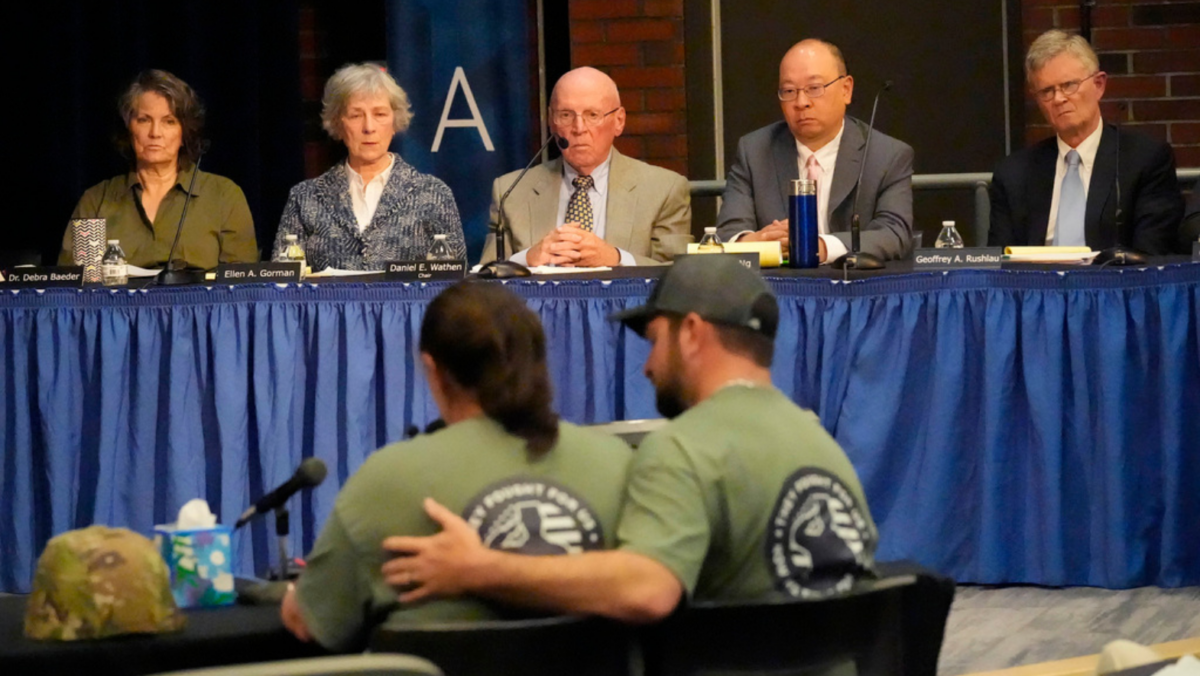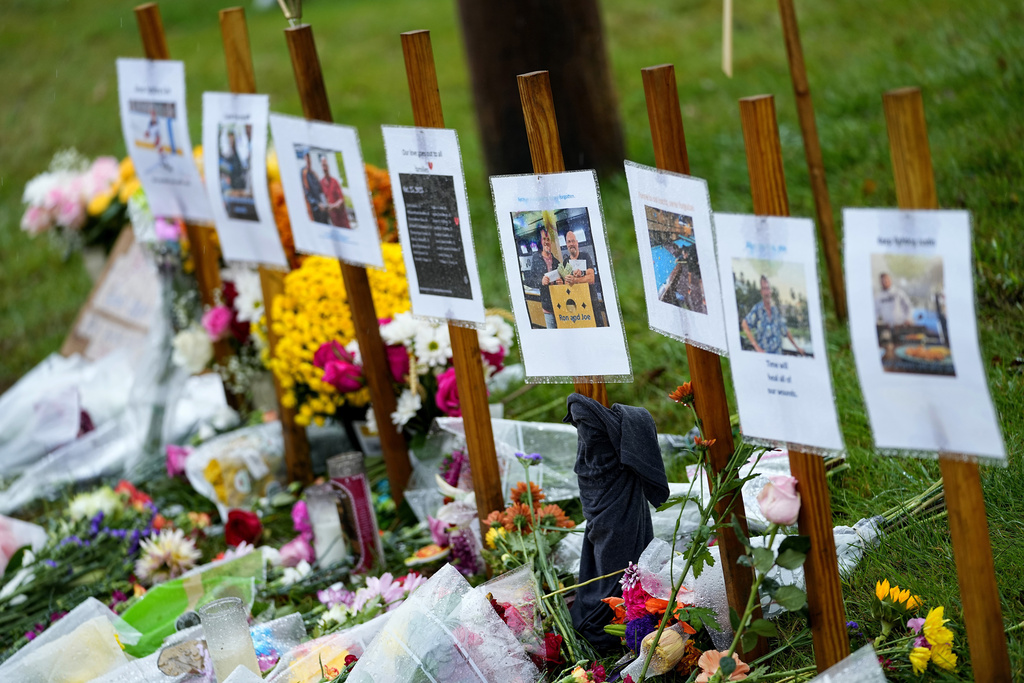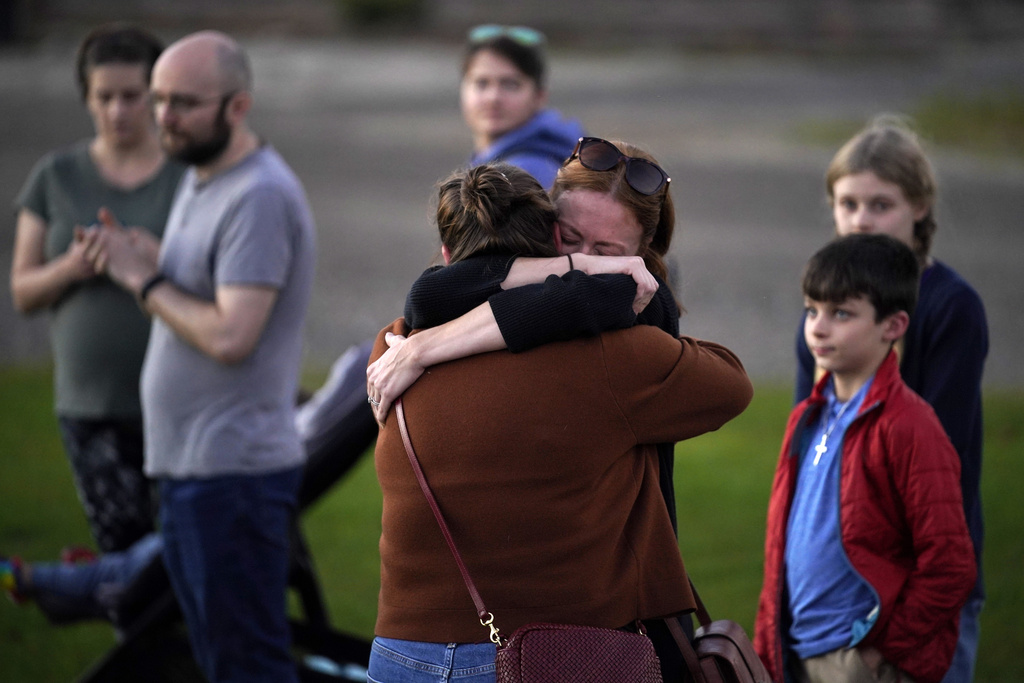Final report on Lewiston mass shooting to be released

Members of the independent commission investigating the law enforcement response to the mass shooting in Lewiston, Maine, listen as Nicole Herling, below left, sister of shooter Robert Card, testifies Thursday, May 16, 2024, in Augusta, Maine. (AP Photo/Robert F. Bukaty, File)
After more than a dozen public meetings, scores of witnesses and thousands of pages of evidence, a special commission created to investigate the deadliest shooting in Maine history is ready to issue its final report on Tuesday.
The independent commission began its work a month after the Oct. 25 mass shooting by an Army reservist that killed 18 people at a bowling alley and a bar and grill in Lewiston. Over nine months, there has been emotional testimony from family members and survivors of the shooting, law enforcement officials and U.S. Army Reserves personnel, and others.
The commission created by Gov. Janet Mills will hold a news conference to release the full report at Lewiston City Hall — less than 3 miles from (5 kilometers) from the two sites where the shootings took place.
It’s unclear if the report will contain any surprises. An interim report released in March said law enforcement should have seized the shooter’s guns and put him in protective custody weeks before the shootings.

Rain soaked memorials for those who died in a mass shooting sit along the roadside by Schemengees Bar & Grille, Oct. 30, 2023, in Lewiston, Maine. (AP Photo/Matt York, File)
The commission’s public hearings revealed the swift response by police to the shootings, but also the ensuing chaos during the massive search for the gunman. Also revealed were missed opportunities to stop the shooter, 40-year-old Robert Card, an Army Reservist whose mental health was spiraling.
Card’s sister testified at a hearing, her hand resting on his military helmet as she spoke.
Kathleen Walker, whose husband Jason was killed while rushing at Card to try to stop him, also testified, and said: “The system failed, and we can’t allow this to happen again.”
Family members and fellow reservists said Card had exhibited delusional and paranoid behavior months before the shootings. He was hospitalized by the Army during training in July 2023, but a commanding officer acknowledged not checking to ensure compliance on follow-up care.

Lindsay Marlow, facing camera, hugs Courtney Majoros, Oct. 28, 2023, at a vigil in Lisbon Falls, Maine, for the victims of recent mass shootings. Majoros’ brother, Max Hathaway, was one of the people killed in separate shootings in nearby Lewiston, Maine. (AP Photo/Robert F. Bukaty, File)
The starkest warning came in September when a fellow reservist texted an Army supervisor, saying, “I believe he’s going to snap and do a mass shooting.” Card was found dead of a self-inflicted gunshot wound after a search that followed the shootings.
Army officials conducted their own investigation after the shootings that Lt. Gen. Jody Daniels, then the chief of the Army Reserves, said found “a series of failures by unit leadership.” Three Army Reserve officers were disciplined for dereliction of duty, according to the report, which noted communication failures within the chain of command and between military and civilian hospitals.
Maine’s legislature passed new guns laws for the state, which has a tradition of firearms ownership, in the wake of the shootings. A three-day waiting period for gun purchases went into effect earlier this month.
The Lewiston commission is chaired by Daniel Wathen, a former chief justice of Maine’s highest court. The seven-member commission also included two former federal prosecutors, two additional former judges, a psychiatrist and executive at a psychiatric hospital, and the state’s former chief forensic psychologist.

